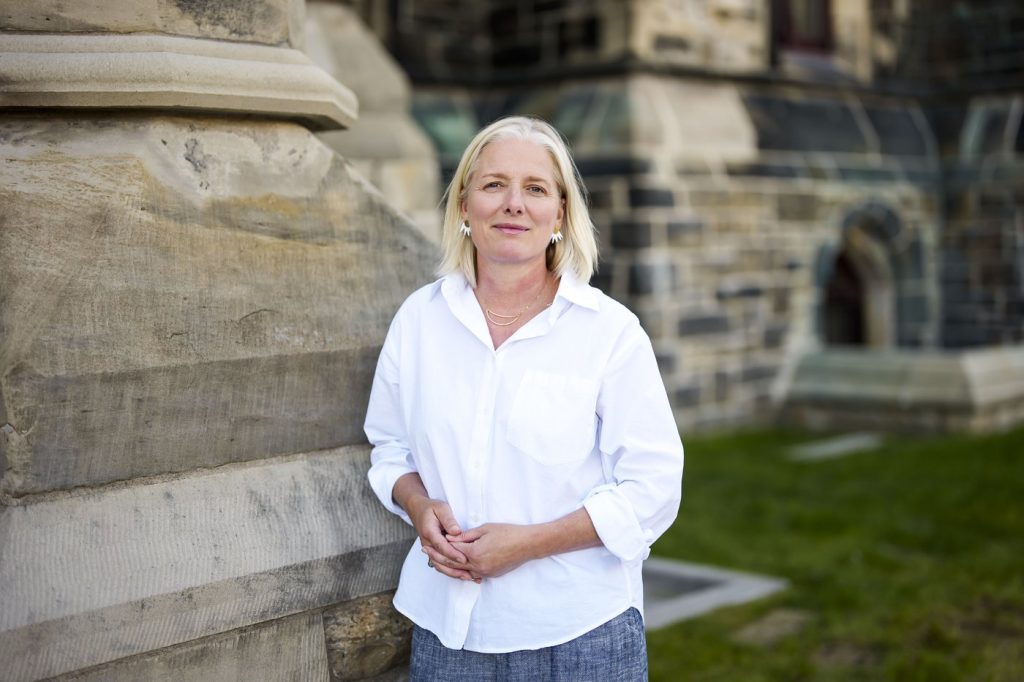OTTAWA — Former environment minister Catherine McKenna has revealed that federal security agencies initially refused to provide her with protection despite facing escalating threats and harassment both online and in person. In her upcoming autobiography, Run Like a Girl, McKenna shares her harrowing experiences as a public figure, particularly as the minister responsible for climate policy under the Trudeau government from 2015 to 2021.
McKenna reflects on the nature of the abuse she faced, detailing how it evolved from social media attacks to more aggressive harassment, including threats directed towards her family. She highlights that many of the social media messages included violent imagery, such as a meme depicting a Barbie doll being crushed by a sledgehammer, and included threats towards her children suggesting they would contract fatal diseases.
She recounts several disturbing incidents, including strange individuals showing up at her home in Ottawa and filming their actions, as well as a man who verbally assaulted her and her children outside a movie theater while recording the encounter. The harassment did not stop at her home; her constituency office also faced vandalism and her staff received disturbing threats via letters and packages.
In August 2020, a particularly alarming incident occurred when a man entered her constituency office and verbally assaulted her staff while recording his actions. Although the Royal Canadian Mounted Police (RCMP) were informed, McKenna was dismayed to learn that they did not respond. Consequently, she reached out to the Ottawa Police, who initiated an investigation, prompting McKenna to demand an immediate meeting with the Prime Minister's Office to address the increasing security risks faced by Members of Parliament (MPs).
During this meeting, McKenna felt that her concerns were dismissed as security agencies shifted responsibility among themselves. The RCMP informed her they only provided security when there was a "significant risk," and when she requested her risk assessment, they refused to disclose it, citing security clearances. Frustrated, she reminded them that she held a top-security clearance as a minister.
McKenna’s frustration intensified when she was told that the man harassing her could be located anywhere in Canada. “He’s here in Ottawa,” McKenna reportedly exclaimed, emphasizing that the Ottawa Police knew his whereabouts. Eventually, the RCMP did increase security measures for her and other ministers as a result of these events.
In her book, she also mentions that former defence minister Harjit Sajjan experienced similar challenges regarding access to his risk assessment. She argues that the lack of support and protective measures for politicians, especially women, is a pressing issue that needs to be addressed. McKenna, reflecting on the severe threats many women in politics face, expressed her intention of writing the book to inspire young women and encourage them to engage in political life.
McKenna's account sheds light on a broader crisis regarding the security of politicians, revealing that the environment in which they operate can often be hostile. She emphasizes that the current security situation is unacceptable, and many Canadians likely agree with her stance. As reported, the RCMP's budget for protecting parliamentarians, excluding the Prime Minister, has significantly increased, indicating a growing recognition of the need for better protection for public officials.
In conclusion, McKenna’s experiences reflect the concerning reality faced by many women politicians today, reinforcing the need for systemic changes in how threats are addressed and security is managed for public figures.












